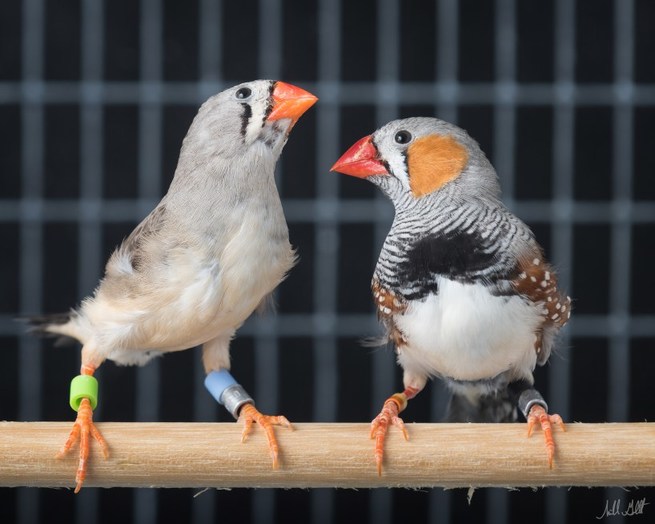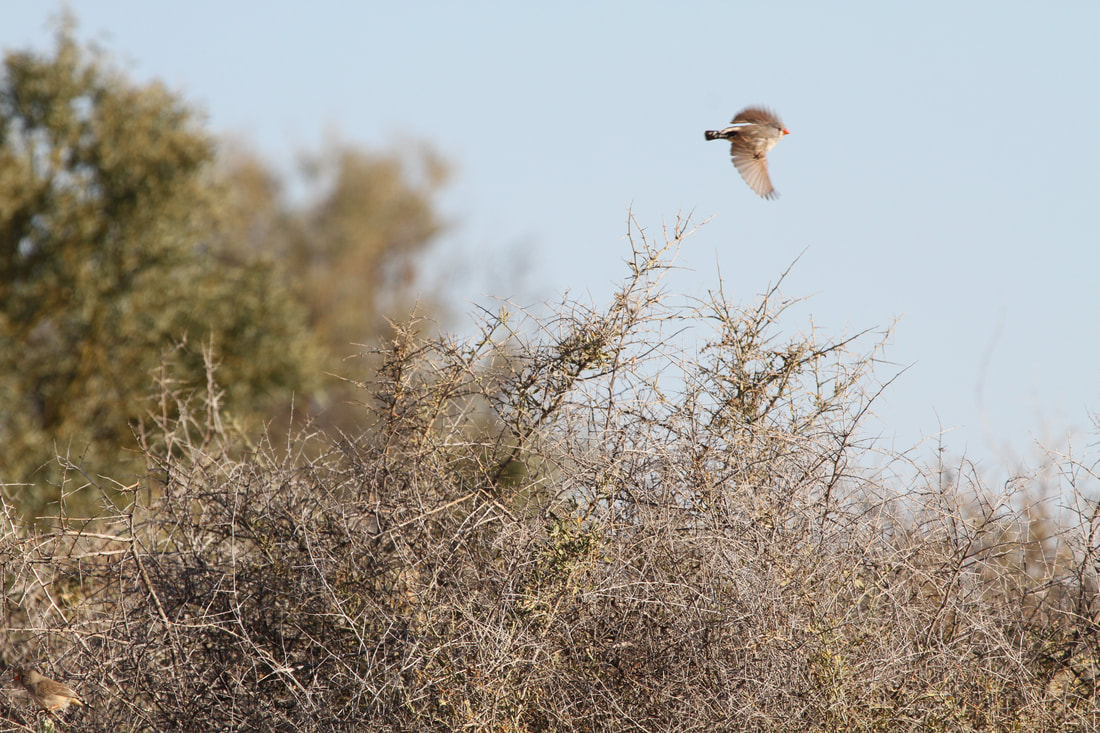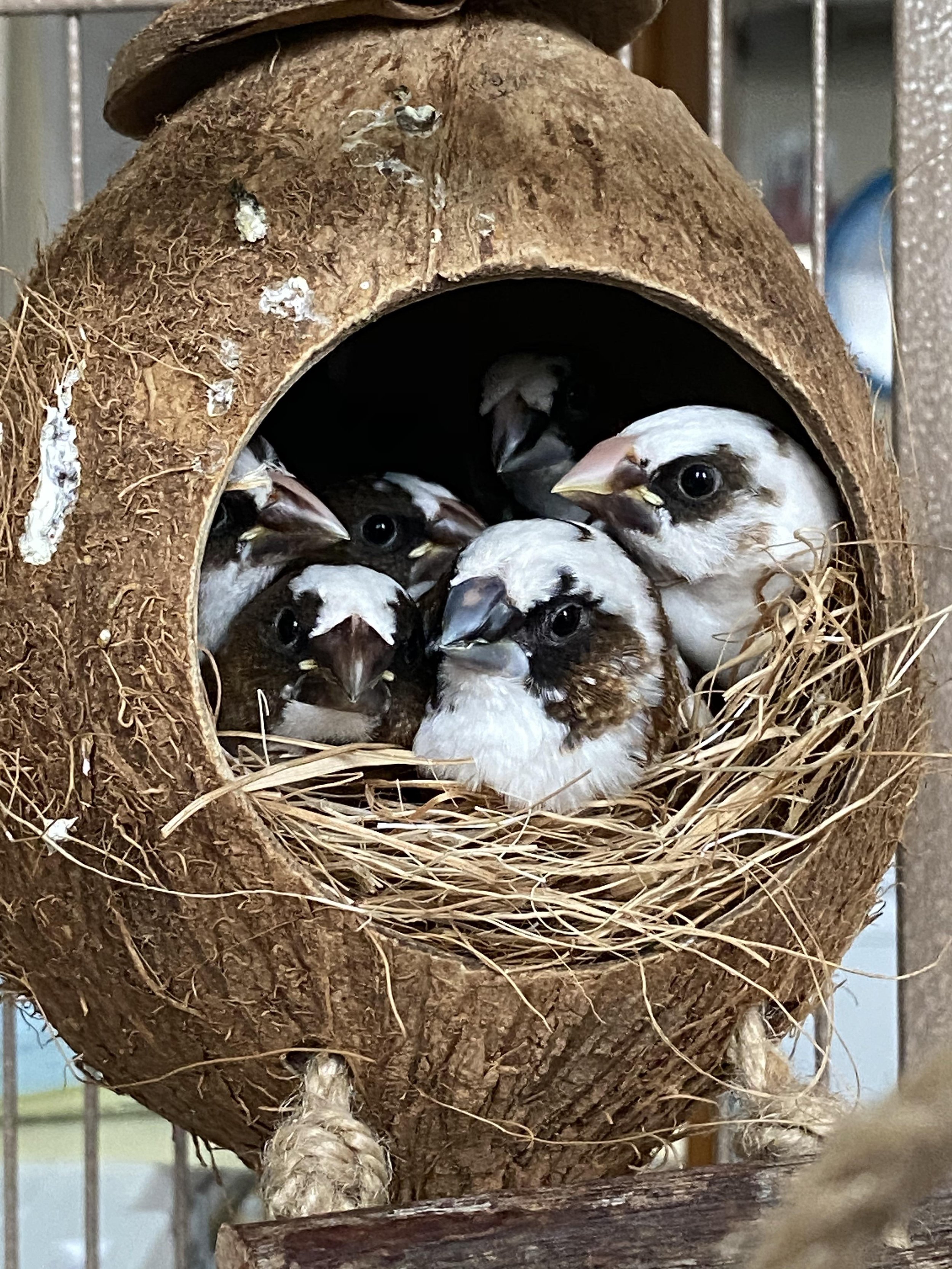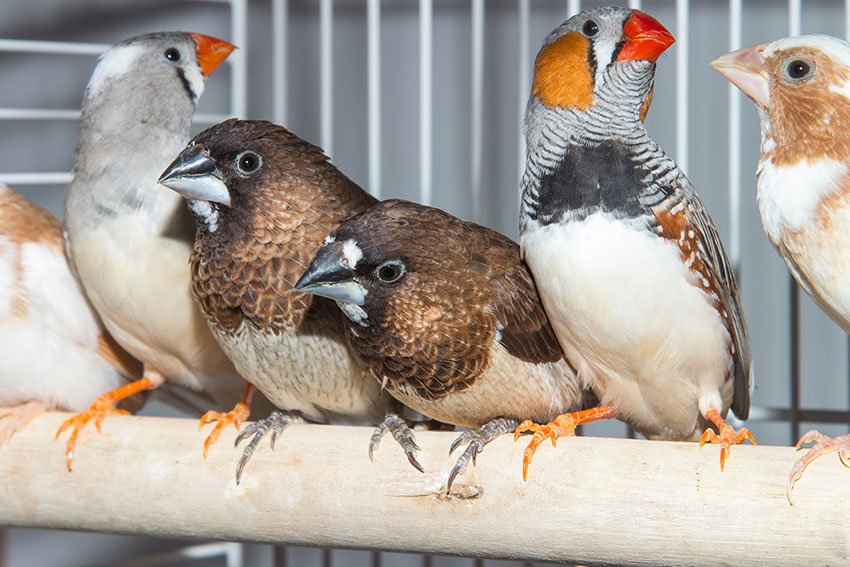Evolution & development of songbird social behavior
At the core of our research is a desire to understand the interplay between an individual’s environment, physiology, and genes in the development of the social brain. In our lab, we study two species of songbirds: the zebra finch and an unusually social domesticated songbird strain, the society finch. Through developmental experiments in the lab, we investigate how social experiences, hormones, gene expression in the brain, and the genome together shape social development, particularly socially guided vocal learning. Similar to human infants, male songbirds learn their courtship song through highly contingent social interactions with adults. Female songbirds learn to recognize the sounds of and come to prefer species-typical songs through interactions with adults, as well. Thus, the study of the mechanisms that support this socially guided vocal learning in songbirds provides fundamental insights into vocal learning in our own species, with many applications for neurodevelopmental disorders.
Work in the lab is highly integrative and combines approaches from multiple disciplines at the intersection of neuroendocrinology, neuroscience, animal behavior, evolutionary developmental biology, and genetics/genomics. We welcome students with interdisciplinary interests, as well!
Would you like to learn more about our research?
Check out this page for information about Dr. Baran’s previous work. You are also welcome to reach out to Dr. Baran to chat about opportunities to conduct research in the lab.



